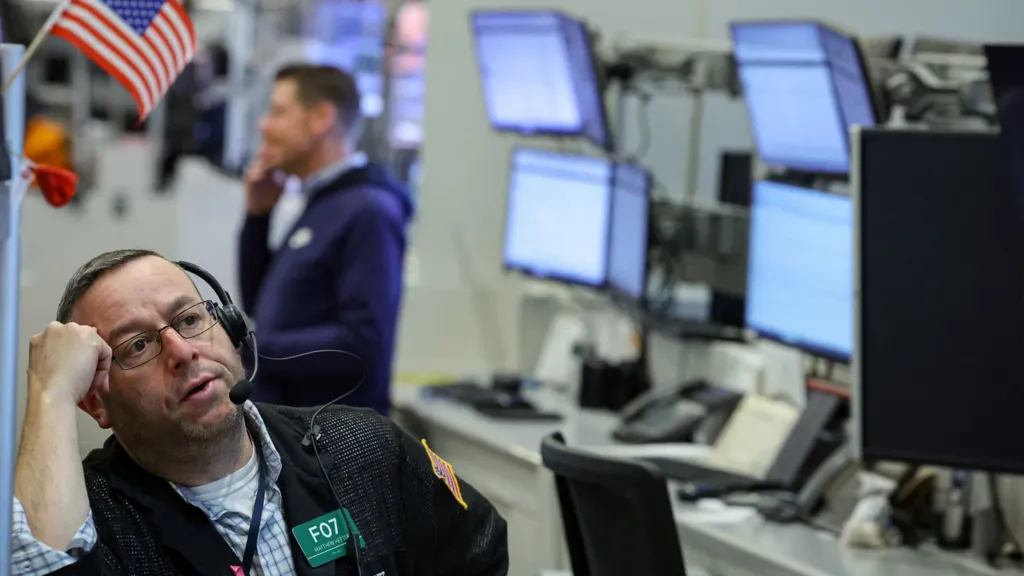President Donald Trump 's long-awaited announcement on tariff policy appears to have caught some on Wall Street off-guard, or at least come in toward the negative end of expected outcomes. Exchange traded funds that track market indexes like the S & P 500 and Nasdaq 100 were selling off during after-hours trading Wednesday. Shares of companies seen as particularly at risk from tariffs, such as Nike , saw even larger declines. The policy announced by the Trump administration on Wednesday included reciprocal tariffs that vary country to country on some of the U.S.'s largest trading partners, as well as a blanket 10% duty on imports from all countries. Bob Elliott, CEO and CIO of Unlimited, pointed out that the announcement brings the U.S. back to its highest tariff rate since the Smoot-Hawley era nearly a century ago, and said the move could hurt economic growth in the U.S. if the levies remain at the announced thresholds. However, he told CNBC he believes most investors expect the tariffs to be reduced or reversed in a matter of months, which could limit the initial selling in the stock market.
Here is some more reaction to the tariff announcement from around Wall Street.
Adam Hetts, global head of multi-asset at Janus Henderson: "Eye-watering tariffs on a country-by-country basis scream 'negotiation tactic,' which will keep markets on edge for the foreseeable future. We've seen the administration have a surprisingly high tolerance for market pain, now the big question is how much tolerance it has for true economic pain as negotiations unfold."
Todd Jablonski, global head of multi-asset and quant strategies at Principal Asset Management: "U.S. import tariffs threaten to intensify the economic slowing, as well as add to inflationary pressures. However, the performance of the Magnificent Seven suggests markets may have already priced in these impacts. The Fed could act as a tailwind for markets if rate cuts are implemented in response to economic softness."
Larry Tentarelli, chief technical strategist at the Blue Chip Trend Report: "The tariff announcements, they came in higher than forecast. ... I think this opens us up to more downside right now, I think it opens up more reciprocal tariffs coming from these other countries. And I think it just creates a lot of uncertainty. So my view is to stay positioned defensively, have above average cash. And I think, you know, stay in defensive trades like gold."
Scott Helfstein, head of investment strategy at Global X: "The new round of tariffs are not quite as bad as they could be but still are significant. The administration announced a minimum rate of 10%, which was below the 20% that had been signaled. Perhaps more meaningfully, the administration is looking to charge half the monetary and non-monetary taxes on U.S. products. ...There is some dispensation for Mexico and Canada, but this will impact many U.S. companies as S & P 500 companies derive meaningful revenue from overseas. Even domestic industries will likely feel some pinch. Expect market volatility to persist in the coming months as tariff data works into economic data."
Art Hogan, chief market strategist at B. Riley Wealth Management: "What was delivered was as haphazard as anything this administration has done to date, and the level of complication on top of the ultimate level of new tariffs is worse than had been feared and not yet priced into the market. That's exactly where I think we are right now."
Nelson Yu, head of equities at AllianceBernstein: "If we were looking for any incremental clarity, I'm not sure that we got very far there. If you take it at face value, it certainly comes across as more aggressive than the entering expectations. And again, you know that actually should have implications for global growth."
Chris Zaccarelli, chief investment officer at Northlight Asset Management: "The roller coaster ride continues as the initial leaks were positive (only 10% baseline tariffs), but then the details were released and they were far worse than expected (24-49% outside of the EU and UK). Markets are going to continue to struggle with the speed at which tariff details change as well as the ultimate result of the tariffs themselves. The silver lining for investors could be that this is only a starting point for negotiations with other countries and ultimately tariff rates will come down across the board - but for now traders are shooting first and asking questions later."
Dan Ives, global head of technology research at Wedbush: "We would characterize this slate of tariffs as 'worse than the worst case scenario' the Street was fearing. ...Tech stocks will clearly be under major pressure on this announcement as the worries about demand destruction, supply chains, and especially the China/Taiwan piece of the tariffs. Apple produces basically all their iPhones in China and the question will be around exceptions/exemptions on this tariff policy if those companies are building more operations/factories/plants in the US like Apple announced in February."
Sam Stovall, chief investment strategist at CFRA Research: "The market was not expecting it to be as harsh as it is, and as a result, Wall Street was not appreciative of what they heard. ... What they are concerned about is that it will lead to higher inflation and lower EPS growth, if not just increased volatility. I think it'll probably push the markets lower. They will continue lower tomorrow and certainly retest the 10.1% sell-off threshold, and probably push us into a bit deeper of a correction. People were hoping for clarity and it added to opaqueness."
CNBC's Alex Harring, Lisa Han, Sarah Min, Hakyung Kim, Pia Singh and Sean Conlon contributed reporting.
